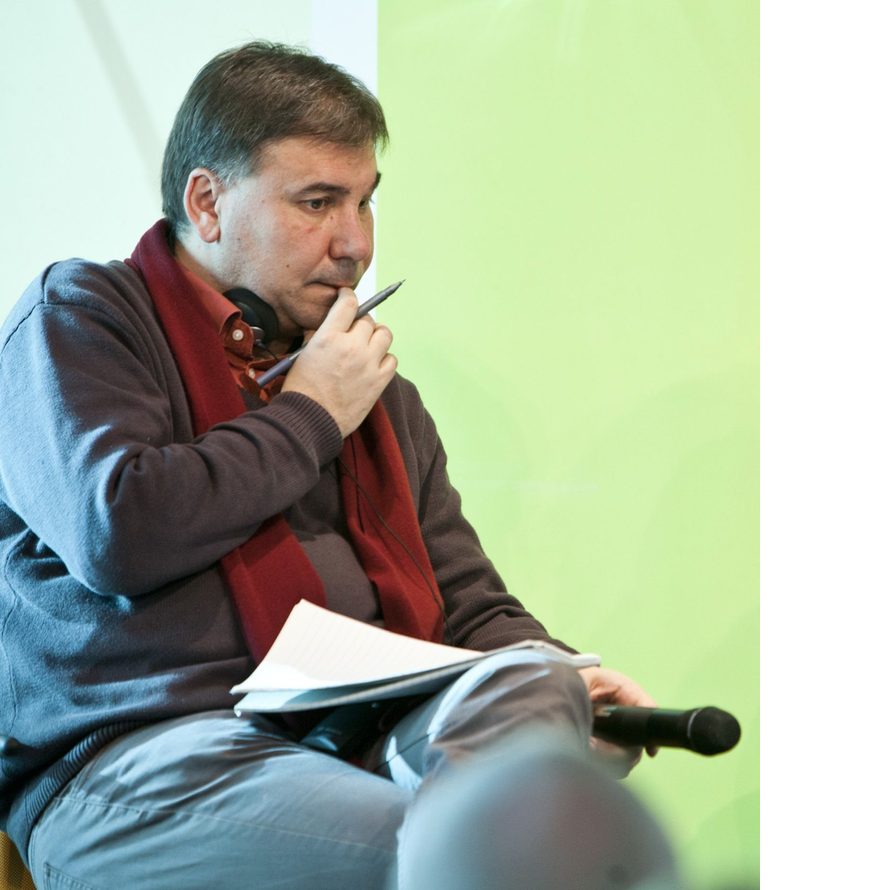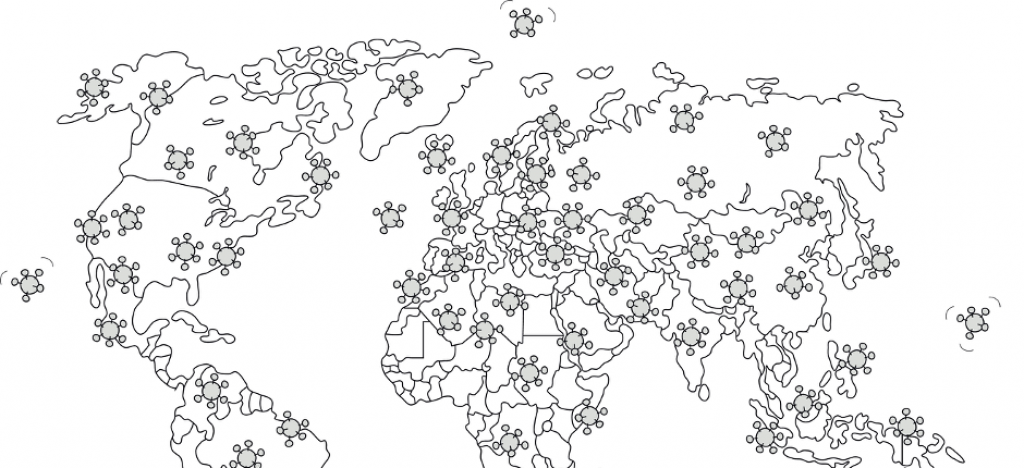Although grounded in different histories and conceptions of the welfare state, the policies that EU member states have enacted as response to the pandemic are remarkably convergent, argues Ivan Krastev, chairman of the Centre for Liberal Strategies in Sofia and fellow at the Institute for Human Sciences in Vienna. His analysis builds on the argument about an “Age of Imitation” developed with his co-author Stephen Holmes in their new book “The Light that Failed”. The Albert Hirschman Centre on Democracy has been forced to postpone its book discussion with the authors scheduled for end April but will upload online an interview with Ivan Krastev on some early lessons from the Corona crisis in May.
In his contribution to the Democray Centre’s series on democratic experiences in the coronavirus pandemic, Krastev asks why “governments show unlimited enthusiasm for copying basically the same package of policies to halt the disease transmission – despite the fact that the social traditions and the state of public health systems are very different in each EU member state.” He puts this down to a “copycat logic” – a risk-averse response to a radically uncertain and unforeseen situation. Governments, afraid of how their citizens might hold them to account in the future, find safety in the seeming facticity that numbers convey even though governments remain unconvinced about what the best approach under the circumstances should be. As a result, EU governments are likely to face two challenges in the coming months: retaining legitimacy in their citizens’ eyes while trying to detach themselves from that copycat logic. And to devise policies targeted at specific national situations, especially how and when to dismantle step by step the restrictions in force today and how best to compensate businesses and workers for the losses suffered during the lockdown.
Read below his full article, published first in the Financial Times, and republished in our series with Ivan Krastev’s kind permission:

Doing as others do can save your life. In 2015, gunmen from the al-Shabaab militant group stormed a college in Kenya. They took students hostage, showing mercy only to those who could prove they were Muslims by reciting a key tract from the Koran. Those who could not were shot.
One Christian student watched what was happening to her fellow students and quickly memorised the tract. As Michelle Baddeley argues in Copycats and Contrarians, the girl “saved her own life through social learning, by gathering information about others’ choices and their consequences”.
This copycat logic explains the central paradox of the European response to the coronavirus outbreak. The crisis has forced societies to retreat to nationalism rather than co-operate with each other. Yet, at the same time, governments show unlimited enthusiasm for copying basically the same package of policies to halt the disease transmission — despite the fact that social traditions and the state of public health systems are very different in each EU member state.
Why are governments that were unwilling to co-operate in the initial stages of the crisis so eager to adopt the same policy approaches now?
The answer might be in the sharp distinction between politics in a moment of uncertainty and the politics of risk, made by the American economist Frank Knight in his 1921 work, Risk, Uncertainty and Profit. Knight posited that, while the future is in principle unknowable, risk is still measurable. It can be estimated using data, provided similar situations have happened before. Uncertainty, on the other hand, deals with outcomes we cannot predict or never saw coming.
The Covid-19 pandemic has been such a moment of unmeasurable uncertainty. In the early stages of the crisis, when mass testing was not possible, governments could not weigh the costs and benefits of policies such as social distancing or economic shutdowns. In this scenario, the most responsible course of action is to assume the worst and take the most risk-averse position. Managing risk is the usual business of democratic governments. Dealing with uncertainty is a very different game.
Amid such uncertainty, governments must show readiness to take extraordinary measures, even if they are not certain to work. At the same time, they want to avoid taking a course of action that could, in retrospect, be questioned by citizens who are well aware of what is being done in other countries. Doing as others do becomes critically important to reassure the public that the situation is under control — and to persuade them of the necessity of staying home, wearing masks, closing businesses and patiently complying with whatever other policies are in place.
Imagine for a moment that half the countries in Europe had decided to go into lockdown, while the others chose to avoid strict measures. The political pressure on governments on both sides to change course would have been almost unbearable. Imagine then that some of the democratic governments had introduced a state of emergency and others had not, while declaring comparable figures for numbers of people infected and dying from the virus. Diverse responses in that case could bring about a collapse in confidence. So it is easy to see why governments in Europe had a strong incentive to copy the policies adopted by the countries hit first by the pandemic, even while they remained unconvinced that they were the best approaches possible.
Sweden is now the only EU government that has decided to reject the policy of “social distancing” and economic lockdown. As such, it is the best demonstration of the risks for contrarians. “People are starting to ask: ‘Are others stupid and paranoid? Or is Sweden doing wrong?’” Orla Vigso, a professor of crisis communications at the Gothenburg university, told The Guardian.
If Swedish hospitals now become overburdened and the number of deaths starts rising, the government in Stockholm will pay a higher political price than its peers in the EU, as a dissenter from the accepted view.
Yet although copycat logic has worked reasonably well while national governments have lacked reliable information about the coronavirus crisis and its effects on economies, the situation may soon change. Continuing to follow the herd while policymakers start to compile more information about the spread of Covid-19 in their own countries (in other words, in a situation where unmeasurable uncertainty is replaced by ordinary risk) will be a mistake.
When it comes to deciding when and how nations should start to loosen strict restrictions and how they will compensate businesses and workers — France, Spain and Italy are beginning to consider those options now, as their infection curves plateau — a variety of timings and approaches will be a sign of policy health.
 Ivan Krastev is the chairman of the Center for Liberal Strategies in Sofia, and a permanent fellow at the Institute for Human Sciences in Vienna. A widely regarded expert on Balkan and European affairs, he is a contributing opinion writer for The International New York Times. He is a founding board member of the European Council on Foreign Relations, a member of the global advisory board of Open Society Foundations, New York, and a member of the advisory council of the Center for European Policy Analysis (CEPA) and the European Cultural Foundation (ECF).
Ivan Krastev is the chairman of the Center for Liberal Strategies in Sofia, and a permanent fellow at the Institute for Human Sciences in Vienna. A widely regarded expert on Balkan and European affairs, he is a contributing opinion writer for The International New York Times. He is a founding board member of the European Council on Foreign Relations, a member of the global advisory board of Open Society Foundations, New York, and a member of the advisory council of the Center for European Policy Analysis (CEPA) and the European Cultural Foundation (ECF).


